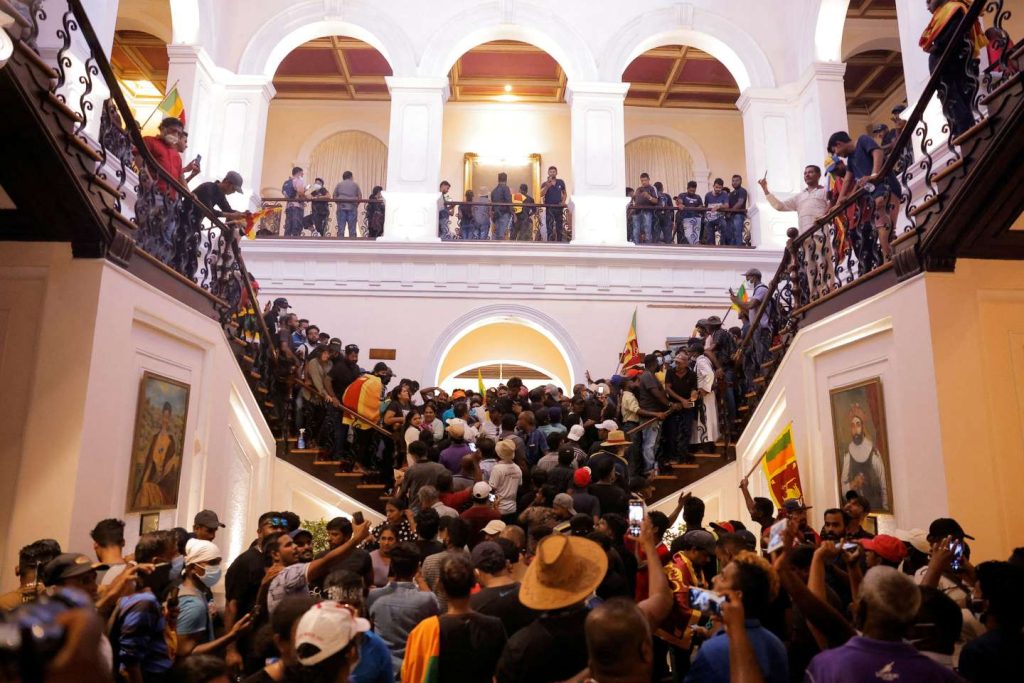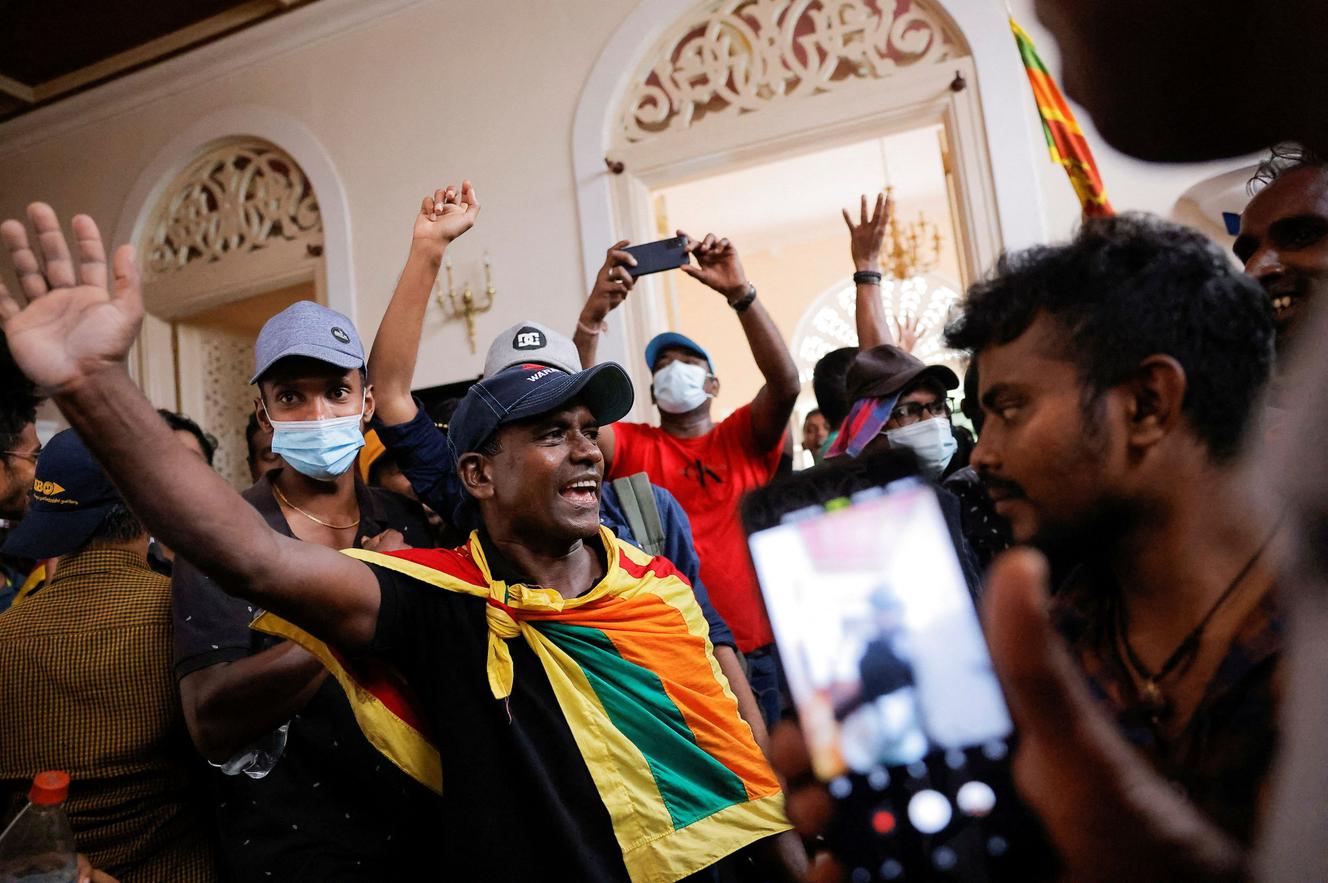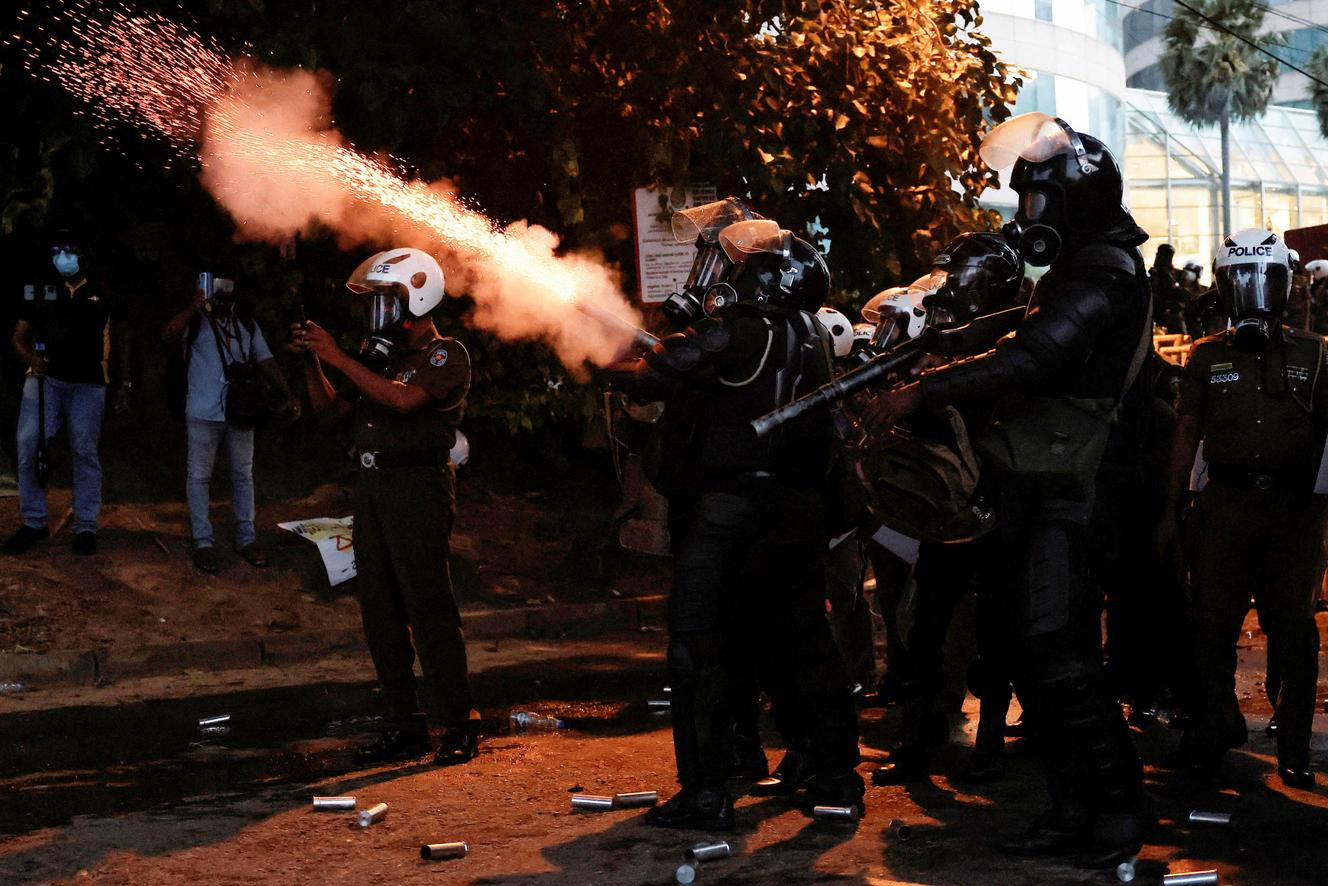
President Gotabaya Rajapaksa announced his resignation

Sri Lankan President Gotabaya Rajapaksa, who fled his palace in Colombo on Saturday, July 9, said he will resign next week according to Parliament Speaker Mahinda Abiwardana. “To ensure a peaceful transition, the president said he will step down on July 13.”He said on TV.
accused of being responsible for An unprecedented economic crisis The country you are facing, the head of state had to flee his palace before hundreds of protesters stormed it. Later the crowd attacked the prime minister’s residence and partially set fire to it.
Protesters stormed the private residence of Prime Minister Ranil Wickremesinghe and set it on fire – … https://t.co/R38UgIXTtA
During the day, Prime Minister Ranil Wickremesinga called an emergency cabinet meeting open to political party leaders to discuss “quick solution” of the ongoing political crisis. He ended up declaring that he was ready to resign to pave the way for a national unity government.
“To ensure the safety of all Sri Lankans, he supports this recommendation by officials of the opposition parties.”said his services in a press release.

Curfew Failed
Local television channels showed pictures of hundreds of people carrying the national flag, tearing down several police barriers and climbing the gates of the presidential palace in the economic heart of the capital. Some protesters have streamed live videos on social media in which a crowd can be seen wandering inside the palace, storming the home’s offices, bedrooms and swimming pool.
Flash – Protesters storm the Presidential Palace in #SriLanka. President Gotabaya Rajapaksa… https://t.co/sKgdSBLaCp
Protesters use the swimming pool of the president of #Sri Lanka after his house was stormed #GoHomeGota… https://t.co/8Bo6LoXlwH
This attack follows a demonstration that brought together tens of thousands of people to demand the resignation of Mr. Rajapaksa. Security forces attempted to disperse a large crowd gathered in the Colombo administrative district. The main hospital in the city reported that three people had gunshot wounds, while 36 others were experiencing breathing difficulties due to the extensive use of tear gas.
The day before, an indefinite curfew had been imposed in Colombo, while thousands of protesters had already begun to flock to demand the president’s resignation. “The curfew had no deterrent effect. It actually encouraged more people to take to the streets as a challengeA defense official said. Passengers request trains to reach Colombo. » Even with their meager reserves of gasoline almost depleted, the protesters, with the support of the main opposition parties, rented private buses to travel to the economic capital.

Economic mismanagement
Due to the lack of foreign exchange due to economic mismanagement and the impact of the crisis caused by the Covid-19 epidemic, this island nation is facing difficulties in importing essential products in particular, causing serious shortages of medicine, food and fuel. The United Nations estimates that about 80% of the population skip meals to meet shortages and rising prices. The population of 22 million has also suffered from accelerated inflation and prolonged power outages since the beginning of the year.
In April, Sri Lanka defaulted on its $51 billion external debt and entered rescue talks with the International Monetary Fund. The following month, several demonstrations erupted. Nine people were killed and hundreds injured during the unrest in the country.

“Unapologetic pop culture trailblazer. Freelance troublemaker. Food guru. Alcohol fanatic. Gamer. Explorer. Thinker.”
